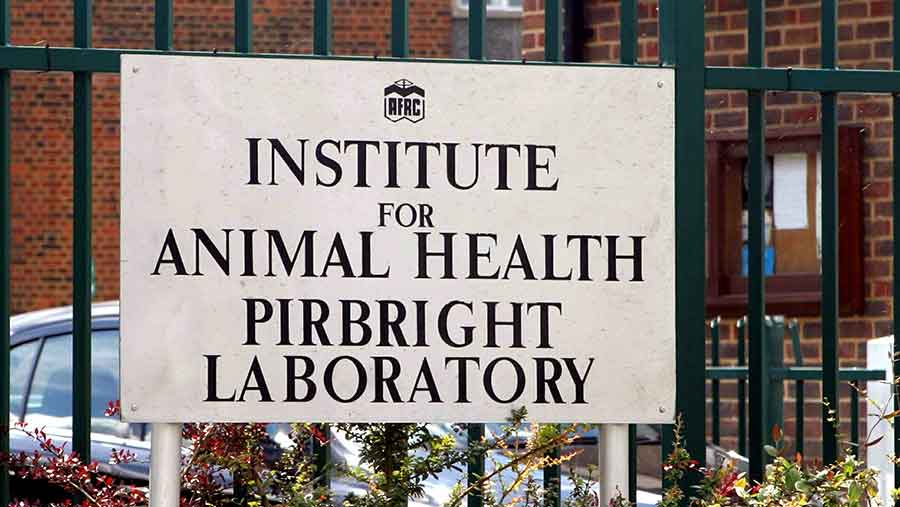£87.3m of government funding for animal health
 © Tony Larkin/Rex/Shutterstock
© Tony Larkin/Rex/Shutterstock The Pirbright Institute for farm animal health has won £77.3m of government funding to carry out two research programmes on virus spread and infection.
The Surrey-based laboratory studies livestock diseases with potentially devastating impact such as African swine fever, foot-and-mouth disease, bluetongue, lumpy skin disease and avian influenza.
It also carries out on-farm surveillance activities for animal health issues and disease movement in the UK.
See also: Video: New research lab for IAH at Pirbright
The first of the two five-year research programmes will focus on virus replication, evolution and transmission, while the second will study control of viral infection and examine why the diseases persist.
How is Pirbright Institute funded?
- Total annual funding about £31m
- 25% BBSRC core grants and strategic funding
- 50% Research grants from government departments and charities
- 25% Commercial payments for its services
The second programme will also include vaccine research and feed into the institute’s gene editing technologies.
The government money comes via the Biotechnology and Biological Sciences Research Council (BBSRC) which assesses bids for grant funding before allocating its £470m annual budget to winning tenders.
Pirbright director Bryan Charleston said the funding demonstrated the government’s confidence in the institute in the face of a growing threat from exotic disease.
“The threat to the UK from viral disease is increasing. The impact of global warming for example means viruses that once only affected tropical regions, are now threatening those in more temperate climates,” said Dr Charleston.
“Pirbright’s research to understand and develop innovative ways of combating the threat of diseases that affect livestock and those that spread from animals to humans has never been more important,” he added.
